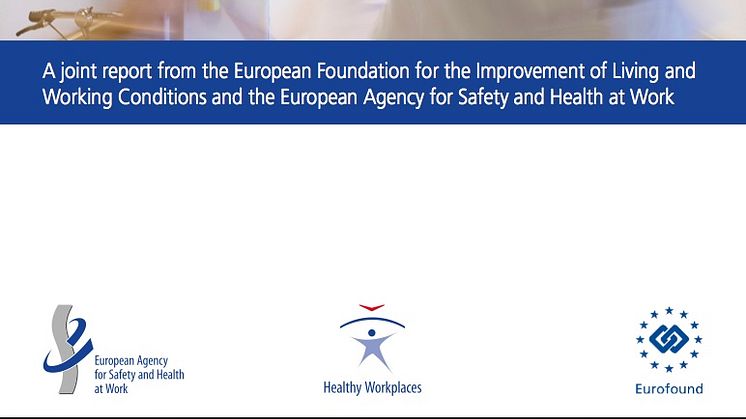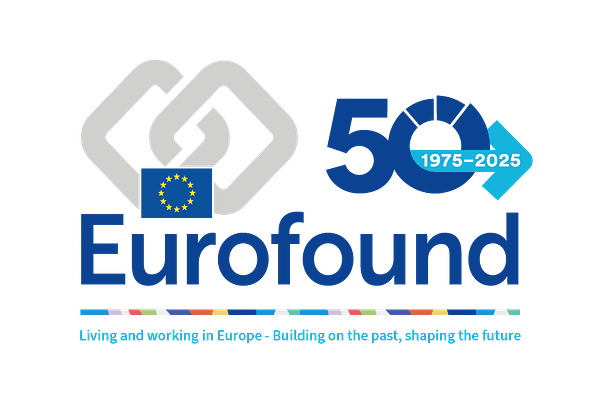
Press release -
Levels of work-related stress, and violence and harassment, are still high in European workplaces
(Dublin, Ireland): One quarter (25%) of workers in Europe report feeling stressed at work all or most of the time, and a similar proportion say that work affects their health negatively. Psychosocial risks — for example, monotonous tasks, high work intensity, tight deadlines, work-life unbalance, violence and harassment from the public or from colleagues — contribute to work-related stress in workplaces in all EU Member States. A new report, published as part of a Europe-wide campaign Healthy Workplaces Manage Stress gives a broad overview on psychosocial risks at European workplaces and gives examples on the way forward at political as well as company level. The report is presented to national labour inspectors and practitioners from several southern European countries in Ljubljana, Slovenia, on Monday 13 October, and to EU-level policymakers in Brussels, Belgium, on Thursday 16 October 2014.
Repetitive and monotonous tasks are among the most prevalent risks at work together with work intensity aspects, experienced by one quarter or workers across the European Union. The same proportion of workers say that work affects their health negatively. However, some aspects of the work environment, such as work–life balance and having career prospects, contribute to better health and well-being. Although the prevalence of workers working long hours is decreasing, work–life balance remains a problem for one-fifth of European workers.
Although fewer people report working long hours, job insecurity has increased across Europe, and in some countries work intensity has increased in companies struggling in the economic crisis. Work-related stress is often seen as a ‘sensitive’ or ‘difficult’ area — a perception that may however differ from one country to another. In particular, managers of small companies find it difficult to tackle psychosocial risks because of lack of resources or expertise.
‘Psychosocial risks in Europe: Prevalence and strategies for prevention’ is published jointly by the European Agency for Safety and Health at Work (EU-OSHA) and the European Foundation for the Improvement of Working and Living Conditions (Eurofound). The report acknowledges the complexity of the relationship between health and work and recognises that practical support is needed to bring about change. It provides a snapshot of working conditions and the incidence of psychosocial risks in Europe, discusses how to manage those risks in the workplace and outlines policy interventions.
‘Reducing psychosocial risks and protecting workers from these risks is critical for allowing longer working lives and preventing early labour market exits. Evidence shows that policies are not developed to the same extent in all European countries, which can be explained by the different traditions of social dialogue and different governmental approaches, often related to the importance the country gives to psychosocial risks,’ says Juan Menéndez-Valdés, Eurofound’s Director, about the report. ‘We hope that our joint report will provide practitioners and policymakers with both the insight and incentive to overcome these challenges of psychosocial risks in the workplace. Research shows that the role of social dialogue and social partners is relevant to raise awareness and implement interventions.’
Dr Christa Sedlatschek, Director of EU-OSHA, described the report as an excellent example of interagency collaboration. ‘One of the key messages of our 2014–15 Healthy Workplaces Campaign is that psychosocial risks, although more sensitive, can be tackled in the same systematic way as “traditional” workplace risks. By combining their strengths, EU-OSHA and Eurofound have produced a state-of the-art review that will make an important contribution to the success of this campaign in getting that message across. In the same way, by working together, management and employees can tackle workplace stress effectively.’
Related links
Topics
The European Foundation for the Improvement of Living and Working conditions (Eurofound) is a tripartite European Union Agency, whose role is to provide knowledge in the area of social and work-related policies. Eurofound was established in 1975 by Council Regulation (EEC) No. 1365/75.
For more information about Eurofound and its work, and free access to all our data and findings, visit our website and follow us on these social media channels: Twitter, LinkedIn, Facebook, Google+, YouTube, or Flickr.


